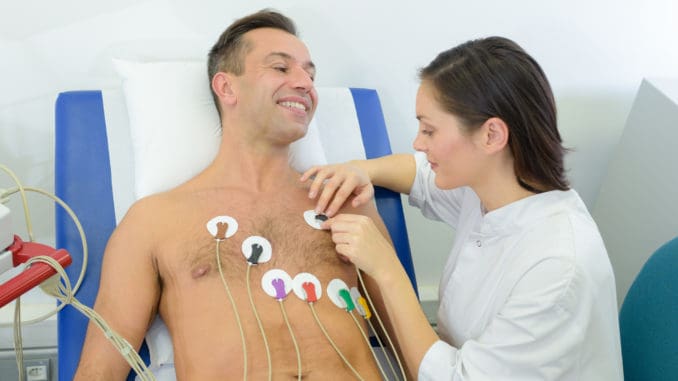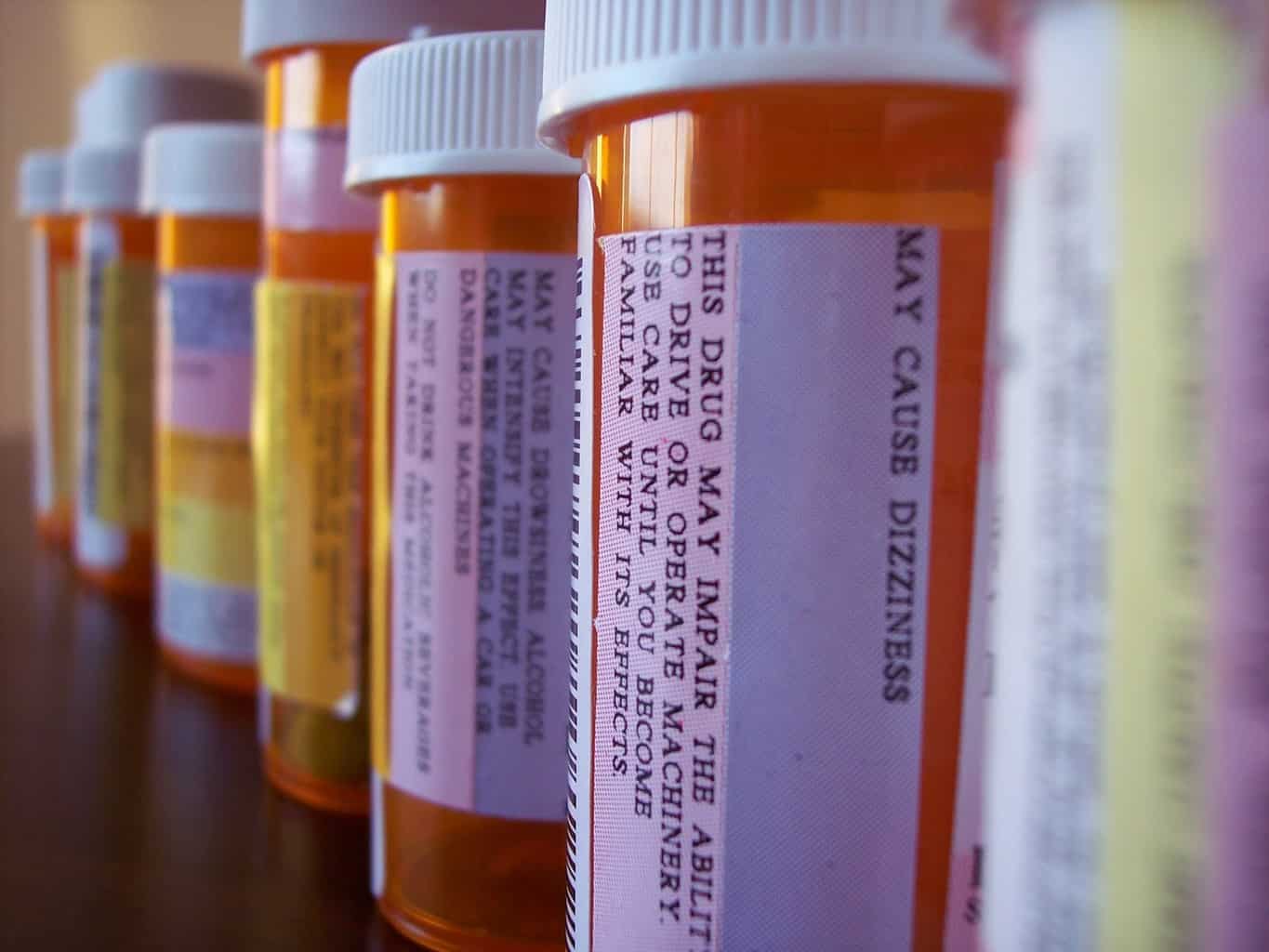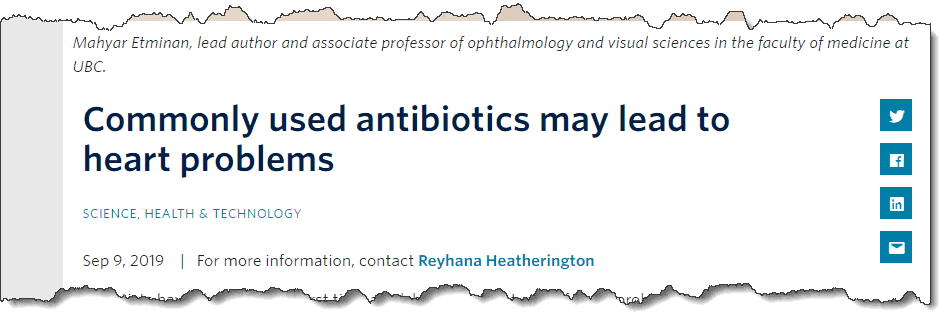
New research reveals it comes with big risks for men…

—-Important Message—-
Men: Avoid all 5 of these meds if you value your natural male “rockiness”
I’ve recently discovered some shocking information about 5 very common treatments men are taking…
These treatments are causing men very bad problems… “down there…”
…and they’re also increasing the risk of heart disease, Alzheimer’s, even cancer.
Here are the 5 manhood killing medications that doctors aren’t telling you about.
———-
This popular antibiotic should be avoided if at all possible
There is a lot of fear mongering today and you MUST read this newsletter because it deals with a common antibiotic.
In this case, it’s a specific and common type of antibiotic that’s causing some bad problems with heart health.

It’s important that you know what this antibiotic is and when you should start asking your doctor tough questions. And perhaps look for a different one.
Except for antibiotic resistance, antibiotics are widely considered “safe”…
Antibiotics are widely considered “safe” to use. And I personally LOVE antibiotics for the lives they save.
But a certain class of antibiotics may be dangerous.
I’m certainly not going to argue that they aren’t an important tool in combating bacterial infections – because they are.
This class of drugs has saved countless lives.
But what I am going to tell you – based on massive data collection – is that this class of antibiotics aren’t always as safe as people think they are…
And you should always consider risk versus reward.
Most people know that the overuse of antibiotics can create antibiotic resistant bacteria, but they don’t always know that antibiotics aren’t discriminatory.
That means that when they kill the bad bacteria in your body, they kill nearly all the bacteria in your body and wipe out your microbiome.
(But that’s for another article.)
Today, I want to let you know about a specific group of antibiotics and how harmful they can be to your heart.
This group is the fluoroquinolone antibiotics – such as Ciproflaxacin or Cipro – commonly used to treat respiratory and urinary tract infections.
And they can put your heart at significant risk.
“In a study published today in the Journal of the American College of Cardiology, researchers at the University of British Columbia (UBC) in partnership with the Provincial Health Services Authority’s (PHSA) Therapeutic Evaluation Unit found that current users of fluoroquinolone antibiotics, such as Ciprofloxacin or Cipro, face a 2.4 times greater risk of developing aortic and mitral regurgitation, where the blood backflows into the heart, compared to patients who take amoxicillin, a different type of antibiotic. The greatest risk is within 30 days of use.”
Doctors like to prescribe Cipro because it’s EASY for patients to take.
And my guess is that Big Pharma pushes it because this type of antibiotic is more profitable.
Mahyar Etminan, lead author of this study and associate professor in the faculty of medicine at UBC:
“You can send patients home with a once-a-day pill…”
But – and this is important – these types of antibiotics often aren’t NEEDED to treat the problem. Often another safer type will work.
“This class of antibiotics is very convenient, but for the majority of cases, especially community-related infections, they’re not really needed. The inappropriate prescribing may cause both antibiotic resistance as well as serious heart problems.”
The big takeaway here is to ask questions.
If your doctor prescribes you Cipro or Ciprofloxacin, then you should find out if you really need it.
In most cases you probably don’t and you can use an alternative that doesn’t have the same risk for heart problems.
The safest antibiotics are the “cyclines” including doxycycline, tetracycline, amoxycillin, penicillin…
Interesting story: My mom always insisted she was allergic to penicillin.
When I was making her health decisions, I asked the doctors to use penicillin instead of the fluoroquinolones.
We did a “challenge” test, and my mom could tolerate penicillin just fine.
For decades she was WRONG. She wasn’t allergic to penicillin at all.
And the penicillin we gave her in the hospital helped her live longer and avoid the terrible side effects possible with the fluoroquinolones.
On the other hand, if you try penicillin or something similar, and it doesn’t work, and your health is declining, the fluoroquinolones may save your life.
But for me it is a last resort.
Most doctors don’t know about this connection between fluoroquinolone antibiotics and heart problems, so it’s up to you to know and understand the risks.
Ultimately we are all responsible for our own health.
And that’s why I bring you this research, because we can’t know what we don’t know.
To your health!
—-Important Message From Our Sponsor—-
Crazy but true: Eat these bakery treats to erase joint pain

I know it sounds too good to be true…
…but researchers are saying these foods found in the bakery aisle are the secret to soothing joint pain.
Scientists have discovered a specific ingredient that provides your joints with everything they need to naturally:
- Reduce swelling
- Increase flexibility
- Repair tissues
- Erase pain
And what really shocked me is this helped 87% of study participants soothe their joint pain, in a study conducted by The Canadian Medical College.
They also concluded that this ingredient works better than CBD Oil. Amazing!
Here are the delicious bakery treats that naturally erase joint pain.
———-
